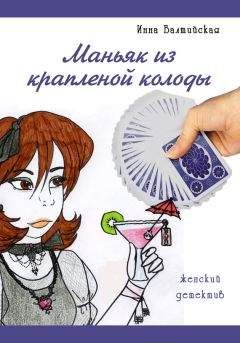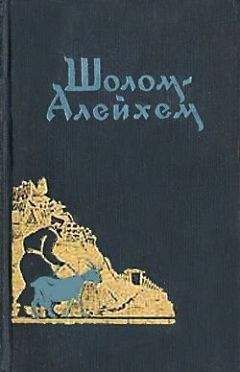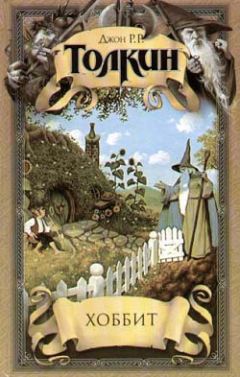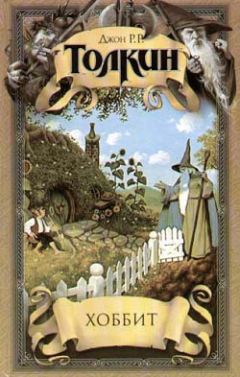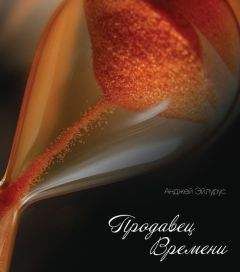Джон Толкиен - Английский язык с Дж. Р. Р. Толкиеном. Хоббит
“I will take your gift, O Bilbo the Magnificent!” said the king gravely. “And I name you elf-friend and blessed. May your shadow never grow less (or stealing would be too easy)! Farewell!”
Then the elves turned towards the Forest (затем эльфы повернулись к Лесу), and Bilbo started on his long road home (а Бильбо начал свой долгий путь домой; road — дорога; путь /к чему-либо/).
He had many hardships and adventures (и было у него много трудностей и приключений; hardships — неприятности, тяготы, лишения) before he got back (прежде чем он вернулся назад). The Wild was still the Wild (Дикий Край был все еще Диким), and there were many other things in it in those days besides goblins (и там было много других вещей в те дни, помимо гоблинов); but he was well guided (но его хорошо вели; to guide — быть проводником, направлять, вести) and well guarded (и хорошо охраняли) — the wizard was with him (волшебник был с ним), and Beorn for much of the way (и Беорн, большую часть дороги) — and he was never in great danger again (и он никогда больше не был в большой опасности). Anyway by mid-winter (в любом случае, к середине зимы) Gandalf and Bilbo had come all the way back (Гэндальф и Бильбо прошли весь путь назад), along both edges of the Forest (вдоль обоих краев Леса), to the doors of Beorn’s house (до дверей дома Беорна); and there for a while they both stayed (и там они оба остановились на некоторое время).
Yule-tide was warm and merry there (там /они/ тепло и весело /провели/ святки; Yule-tide — /арх. / Рождество, святки); and men came from far and wide (и люди пришли издалека и отовсюду; far and wide — широко, повсюду) to feast at Beorn’s bidding (чтобы пировать по приглашению Беорна; bidding — приглашение, призыв). The goblins of the Misty Mountains were now few and terrified (гоблинов Мглистых Гор теперь было мало и они были испуганы; to terrify — ужасать, запугивать), and hidden in the deepest holes they could find (и прятались: «и /были/ запрятаны» в самых глубоких норах, которые они только могли найти; to hide (hid, hidden) ); and the Wargs had vanished from the woods (да и Варги исчезли из лесов), so that men went abroad without fear (так что люди стали ездить /за границу/ без страха). Beorn indeed became a great chief afterwards (после этого Беорн действительно стал важным вождем) in those regions (в тех краях) and ruled a wide land (и управлял широкой землей; to rule — управлять, править; господствовать, властвовать) between the mountains and the wood (/что лежала/ между горами и лесом); and it is said that for many generations (и говорят, что многие поколения) the men of his line had the power of taking bear’s shape (мужчины его рода обладали силой принимать обличие медведя; line — линия; зд. происхождение, родословная, генеалогия), and some were grim men and bad (и некоторые были жестокими и плохими людьми), but most were in heart like Beorn (но большинство в сердце походили на Беорна), if less in size and strength (если и были меньше по размерам и слабее по силе). In their day the last goblins were hunted from the Misty Mountains (в их дни последние гоблины были изгнаны из Мглистых Гор) and a new peace came over the edge of the Wild (и новый мир наступил в Диком Краю).
hardship [ˈhɑ: dʃɪp] region [ˈri: dʒ (ǝ) n] generation [ˌdʒenǝˈreɪʃ (ǝ) n]
Then the elves turned towards the Forest, and Bilbo started on his long road home.
He had many hardships and adventures before he got back. The Wild was still the Wild, and there were many other things in it in those days besides goblins; but he was well guided and well guarded — the wizard was with him, and Beorn for much of the way — and he was never in great danger again. Anyway by mid-winter Gandalf and Bilbo had come all the way back, along both edges of the Forest, to the doors of Beorn’s house; and there for a while they both stayed. Yule-tide was warm and merry there; and men came from far and wide to feast at Beorn’s bidding. The goblins of the Misty Mountains were now few and terrified, and hidden in the deepest holes they could find; and the Wargs had vanished from the woods, so that men went abroad without fear. Beorn indeed became a great chief afterwards in those regions and ruled a wide land between the mountains and the wood; and it is said that for many generations the men of his line had the power of taking bear’s shape, and some were grim men and bad, but most were in heart like Beorn, if less in size and strength. In their day the last goblins were hunted from the Misty Mountains and a new peace came over the edge of the Wild.
It was spring, and a fair one (была весна, ясная и солнечная) with mild weathers (с мягкой погодой) and a bright sun (и ярким солнцем), before Bilbo and Gandalf took their leave at last of Beorn (когда наконец Бильбо и Гэндальф попрощались с Беорном; leave — разрешение, отпуск, расставание; to take (one's) leave — прощаться, уходить), and though he longed for home (и, хотя он и тосковал по дому) Bilbo left with regret (Бильбо покидал /дом Беорна/ с сожалением), for the flowers of the gardens of Beorn (так как цветы в садах Беорна) were in springtime no less marvelous (весной были не менее изумительными) than in high summer (чем в разгар лета). At last they came up the long road (наконец, они прошли по длинной дороге), and reached the very pass (и добрались до того самого перевала) where the goblins had captured them before (где раньше их схватили гоблины). But they came to that high point at morning (но они добрались до того высокого места утром), and looking backward (и, взглянув назад) they saw a white sun (они увидели белое солнце) shining over the out-stretched lands (что светило на раскинувшиеся земли; to outstretch — протягивать, вытягивать). There behind lay Mirkwood (там, позади, лежал Мрачный Лес), blue in the distance (синий вдалеке), and darkly green at the nearer edge (и темно-зеленый у ближайшего края) even in the spring (даже весной). There far away was the Lonely Mountain (там, далеко — далеко, была Одинокая Гора) on the edge of eyesight (на самом краю предела видимости; eyesight — зрение; кругозор, поле зрения). On its highest peak (на самом высоком ее пике) snow yet unmelted (еще нерастаявший снег; to melt — таять; плавить; растапливать) was gleaming pale (мерцал бледным светом). “So comes snow after fire (так вот приходит снег после огня), and even dragons have their ending (и даже драконам приходит конец; ending — завершение; /уст. / смерть, гибель)!” said Bilbo, and he turned his back on his adventure (и он повернулся спиной к своему приключению). The Tookish part was getting very tired (Туковская его часть уставала все больше: «становилась очень усталой»), and the Baggins was daily getting stronger (а Бэггинсова часть с каждым днем становилась сильнее; daily — ежедневно, каждый день).
“I wish now only to be in my own arm-chair (теперь я хочу только одного — быть в моем собственном кресле; arm-chair — кресло с подлокотниками)!” he said.
mild [maɪld] regret [rɪˈɡret] springtime [ˈsprɪŋtaɪm] capture [ˈkæptʃǝ] eyesight [ˈaɪsaɪt]
It was spring, and a fair one with mild weathers and a bright sun, before Bilbo and Gandalf took their leave at last of Beorn, and though he longed for home. Bilbo left with regret, for the flowers of the gardens of Beorn were in springtime no less marvellous than in high summer. At last they came up the long road, and reached the very pass where the goblins had captured them before. But they came to that high point at morning, and looking backward they saw a white sun shining over the out-stretched lands. There behind lay Mirkwood, blue in the distance, and darkly green at the nearer edge even in the spring. There far away was the Lonely Mountain on the edge of eyesight. On its highest peak snow yet unmelted was gleaming pale. “So comes snow after fire, and even dragons have their ending!” said Bilbo, and he turned his back on his adventure. The Tookish part was getting very tired, and the Baggins was daily getting stronger. “I wish now only to be in my own arm — chair!” he said.
Chapter 19. The Last Stage
(Глава 19. Последний этап)
stage — фаза, период, стадия
It was on May the First (было Первого Мая) that the two came back at last (когда эти двое вернулись, наконец) to the brink of the valley of Rivendell (к краю долины Ривенделл; brink — край /обрыва, пропасти/; берег; грань), where stood the Last (or the First) Homely House (где стояло Последнее (или Первое) Домашнее Жилище).
Again it was evening (снова был вечер), their ponies were tired (их пони устали), especially the one that carried the baggage (особенно тот, что вез багаж); and they all felt in need of rest (и все они чувствовали необходимость отдыха). As they rode down the steep path (когда они ехали вниз по крутой тропе), Bilbo heard the elves still singing in the trees (Бильбо услыхал, как эльфы все еще пели меж деревьев), as if they had not stopped since he left (словно они и не переставали /петь/ с того самого момента, как он покинул /этот дом/); and as soon as their riders came down into the lower glades of the wood (и как только всадники спустились в более нижние полянки в лесу) they burst into a song (они /эльфы/ запели песню; to burst into smth. — внезапно или бурно начинать что-либо, разразиться чем-либо) of much the same kind as before (очень похожую на ту же песню, что и раньше: «почти такого же рода»; kind — сорт, класс, вид).
